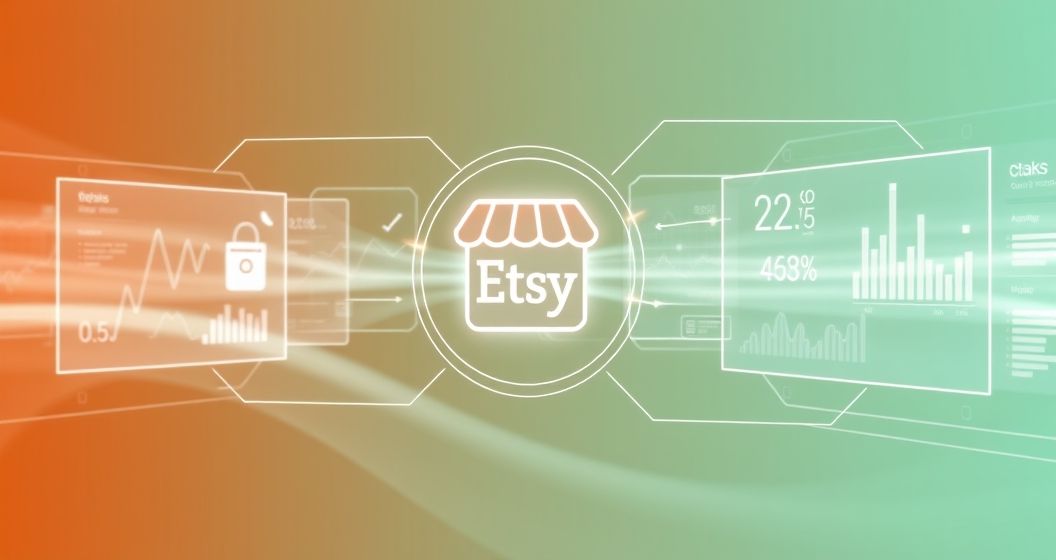In the evolving digital marketplace, Etsy sellers continually seek ways to refine their operations, enhance efficiency, and expand their market reach. Etsy integrations provide a crucial solution, connecting a seller’s shop with various external tools and platforms. These integrations span across multiple business functions, from inventory management and order fulfillment to accounting and marketing, creating a more cohesive and automated selling environment. Understanding the strategic value and diverse applications of these integrations is fundamental for any Etsy entrepreneur aiming for sustainable growth and operational excellence.
Understanding Etsy Integrations: Enhancing E-commerce Operations
Etsy integrations refer to the process of linking your Etsy shop with third-party software applications, systems, or other e-commerce platforms. This connectivity allows for the automated exchange of data, streamlining workflows that would otherwise require manual effort. The primary goal is to centralize management, reduce human error, and free up valuable time for sellers to focus on product creation and customer engagement. These tools are designed to work seamlessly, ensuring that vital information, such as stock levels or new orders, is consistently updated across all connected channels.
Streamlining Inventory Management Across Platforms
Effective inventory management is paramount for sellers operating on Etsy and other sales channels. Integrations facilitate real-time synchronization of stock levels, preventing overselling or underselling issues that can damage customer trust and lead to financial losses. When an item sells on Etsy, the integration automatically adjusts the quantity on a personal website or another marketplace, and vice versa. This cross-platform consistency ensures accurate product availability information for customers, improving overall operational efficiency and seller reputation in the competitive e-commerce landscape.
Automating Order Fulfillment and Shipping Processes
The journey from a customer placing an order to receiving their package involves several critical steps. Etsy integrations can significantly automate order fulfillment by connecting your shop directly with shipping label generators, fulfillment services, and logistics providers. This automation reduces the time spent on manual data entry, minimizes shipping errors, and accelerates the dispatch process. Sellers can generate shipping labels with a few clicks, automatically update tracking information, and notify customers, all contributing to a smoother and more professional customer experience.
Financial Tracking and Accounting Software Integration
Managing finances accurately is vital for any business, including Etsy shops. Integrating Etsy with accounting software like QuickBooks or Xero simplifies bookkeeping by automatically importing sales data, expenses, and transaction fees. This eliminates the need for manual data entry, reducing the potential for errors and saving considerable time during tax season or financial reporting periods. Real-time financial insights gained from these integrations empower sellers to make informed decisions about pricing, profitability, and overall business strategy, fostering sound financial health.
Expanding Reach with Website and E-commerce Platform Sync
Many Etsy sellers eventually consider expanding their presence beyond the platform by launching their own independent websites or selling on other marketplaces. Integrations enable seamless synchronization of product listings, orders, and customer data between Etsy and platforms like Shopify or WooCommerce. This multichannel approach allows sellers to manage all their listings and sales from a single dashboard, broaden their customer base, and diversify their revenue streams without duplicating effort. It’s a strategic move for growth and brand development.
Leveraging Print-on-Demand and Dropshipping Integrations
Print-on-demand (POD) and dropshipping models offer significant advantages for Etsy sellers by minimizing upfront inventory costs and operational complexities. Integrations connect Etsy shops with POD services (e.g., Printful, Printify) or dropshipping suppliers, automating the creation and fulfillment of custom products like apparel, mugs, and art prints. When an order is placed, the integration automatically sends the design and order details to the supplier, who then prints, packages, and ships the item directly to the customer. This enables a wider product offering with reduced risk.
Enhancing Customer Relationship Management (CRM) for Etsy Sellers
Building strong customer relationships is essential for repeat business and positive reviews. While Etsy provides basic messaging, integrating with a dedicated Customer Relationship Management (CRM) system can elevate customer service. A CRM integration can centralize customer data, order history, and communication, allowing sellers to personalize interactions, manage inquiries efficiently, and implement targeted marketing campaigns. This organized approach to customer management helps foster loyalty and ensures no customer query goes unanswered, enhancing the overall buying experience.
Strategic Considerations for Choosing the Right Etsy Integrations
Selecting the appropriate Etsy integrations requires careful consideration of a seller’s unique business needs, volume, and growth aspirations. Factors such as the cost of the integration, its features, compatibility with existing systems, and the level of customer support offered by the provider are crucial. Sellers should evaluate how each integration can solve specific pain points, automate repetitive tasks, and contribute to long-term efficiency and scalability. A well-chosen suite of integrations acts as a powerful catalyst for sustained business development.
Optimizing Your Etsy Store: A Path to Growth and Efficiency
Etsy integrations represent a powerful suite of tools for sellers aiming to optimize their e-commerce operations. By automating critical business processes, from inventory and order management to accounting and customer relationship management, these integrations free up valuable time and resources. They enable sellers to reduce errors, expand their market reach, and focus on the creative aspects of their craft. Strategic adoption of the right integrations transforms an Etsy shop into a more efficient, scalable, and ultimately, more profitable venture, setting a solid foundation for future success.






